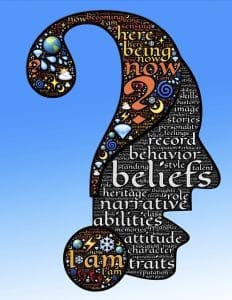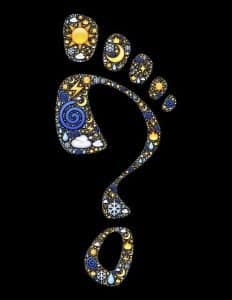Embracing Sobriety After 50 — Stop Drinking in Midlife
Life is a journey filled with twists and turns, and sometimes, the path we tread may lead us into the clutches of alcohol misuse. It can be tough to get sober in mid-life if you have been drinking for years. So, let’s look at the unique challenges faced by those seeking sobriety later in life and explore the inspiring stories of people who have conquered their addictions and embraced a healthier, sober lifestyle.

Turning to alcohol as a stress reliever or anti-depressant is common but drinking has the opposite effect entirely — it increases stress and anxiety. Major life changes, health issues, loneliness, or coping with emotional traumas can lead to a dramatic increase in drinking. The social stigma around addiction, drinking too much and stopping drinking can make it difficult for older adults to seek help, resulting in prolonged suffering in silence.
One of the first steps towards recovery for anyone, regardless of age, is acknowledging the problem and accepting the need for change. For individuals over 50, this process may involve dismantling a lifetime of denial and facing the uncomfortable truths surrounding their drinking. It requires immense courage to confront past mistakes, past life traumas and issues of low self-esteem but doing so paves the way to a renewed sober lifestyle.
Giving up alcohol after years of drinking in your 50s coincides with all the changes due in midlife and for women this compounds with perimenopause and menopause. Men also experience enormous hormonal changes and psychological issues between the ages of 40 and 60. For all people over 50, sobriety means rediscovering themselves, redefining their purpose, and embracing a life free from the shackles of alcohol overuse. This process can be both liberating and challenging as they navigate a new way of living and confront emotions they may have suppressed for years.
What is the Midlife Crisis for Men?
This is a psychological and physiological phenomenon that is often associated with feelings of dissatisfaction, restlessness, and introspection that some men experience during their middle years, typically between the ages of 40 and 60. It is important to note that not all men go through a midlife crisis, and the intensity and expression of this experience can vary significantly from person to person.

Characteristics may include:
- Self-reflection: reflecting on past achievements and goals, leading to questions about the direction of their lives and whether they have accomplished what they had hoped for.
- Mortality and ageing: some men may experience fear or anxiety about the passage of time and the limitations it imposes.
- Desire for change: feel a strong urge to make significant changes in their lives, such as career shifts, lifestyle adjustments, or seeking new experiences.
- Feeling trapped or unfulfilled: perceive a sense of being stuck in their current life situation, leading to a desire for new challenges and opportunities.
- Re-evaluation of relationships: reassess their relationships, including their marriages or long-term partnerships, and contemplate their level of satisfaction and happiness in these connections.
- Pursuit of youthfulness: In an attempt to recapture their youth or regain a sense of vitality, some men may engage in activities such as buying sports cars, trying extreme sports, or altering their appearance.
- Mood swings and emotional turmoil: Men experiencing a midlife crisis may undergo emotional ups and downs, which can affect their behaviour and interactions with others.
Stop Drinking and Embrace a Sober Lifestyle
Whether you are a man or a woman in midlife over 50, getting sober isn’t just about giving up alcohol; it’s about embracing a healthier lifestyle in mind, body, and spirit. It’s an exciting time to learn to find new hobbies, engage in physical activities suitable for your age, and adopt healthy coping mechanisms to manage stress and emotions effectively.
The Power of Support Groups like Tribe Sober
In the journey towards sobriety, support groups can be a lifeline. For individuals over 50, finding peers who have walked a similar path can be immensely reassuring and inspiring. These groups offer a safe space to share experiences, celebrate successes, and find comfort in knowing they are not alone in their struggles.
Since 2015 Tribe Sober has built a community of people who are changing their relationship with alcohol. The members include sober people, people who are struggling, people who are well on their way and of course newbies. The beautiful thing is we are all helping each other to get (or stay) on track. This international sober community provides workshops, coaching and challenges — but most of all it offers connection with community.
Connection is the opposite of addiction and that’s why having a tribe works so well. Tribe Sober is based on a membership program which offers Chat groups, a Zoom Cafe, Sober Buddies, a Library, a Yoga Studio, Nutritional and Medical advice — and much more.
Recovery is rarely a linear process, and bouncing back from a setback may require greater resilience and determination- those giving up alcohol may find they experience several frustrating “Day 1s” until they change their thinking about drinking! These periods can instead be seen as opportunities for growth and a chance to reinforce that commitment to sobriety.
Embarking on the journey to sobriety after the age of 50 is a testament to the strength of the human spirit. It takes immense courage, determination, and a willingness to confront the demons of the past. However, with the right support, treatment, and a commitment to change, recovery is possible at any age. The stories of those who have triumphed over addiction later in life are a source of inspiration and hope for anyone battling their demons, proving that it’s never too late to reclaim one’s life and embrace the joys of sobriety.
Navigating Perimenopause: A Time to Avoid Alcohol
As we all know, the biological forces in a woman’s life are profound and when she reaches the age of 50, a woman is in menopause and nature dictates many hormonal and psychological changes that are part of the cycle of life.
Perimenopause is the lengthy phase leading up to menopause, that significant transition in a woman’s life, signalling the end of reproductive years and the onset of menopause. It’s a transitional phase that can last several years and brings about various physical and emotional changes. It is crucial for women to pay attention to their health and well-being and women in perimenopause should seriously consider avoiding alcohol which adds fuel to the flames.

Issues with alcohol use during perimenopause:
- Hormonal Imbalance and Increased Sensitivity — perimenopause is characterized by hormonal fluctuations as the body prepares for menopause. The ovaries produce less oestrogen and progesterone, leading to an imbalance in hormone levels. Alcohol consumption can exacerbate hormonal irregularities and may lead to more severe symptoms such as hot flashes, night sweats, and mood swings.
- Impact on Bone Health — oestrogen plays a crucial role in maintaining bone density, and its decline during perimenopause increases the risk of osteoporosis, a condition that weakens bones and makes them more prone to fractures. Unfortunately, alcohol interferes with the body’s ability to absorb calcium and other essential minerals, further compromising bone health.
- Sleep Disturbances — sleep disturbances are common during perimenopause, and alcohol can exacerbate the problem. While alcohol may initially induce drowsiness, it disrupts the normal sleep cycle, leading to fragmented and poor-quality sleep. Restorative sleep is vital for overall health and is especially important during this transitional phase.
- Increased Risk of Breast Cancer — research has indicated a connection between alcohol consumption and an increased risk of breast cancer. During perimenopause, women already face changes in breast tissue density and composition due to hormonal shifts. Adding alcohol to the mix may further elevate the risk of developing breast cancer, making it a risk factor worth avoiding.
- Emotional Well-being and Mood Swings — perimenopause is often associated with emotional ups and downs. Mood swings, anxiety, and depression can become more prevalent during this phase. While some individuals may turn to alcohol as a coping mechanism, it ultimately worsens emotional well-being and may contribute to a cycle of negative emotions.
- Weight Management Challenges — maintaining a healthy weight can become more challenging during perimenopause due to hormonal changes and a slowing metabolism. Alcohol is high in empty calories and can lead to weight gain, especially when consumed in excess. Avoiding alcohol can support efforts to manage weight and promote overall health.
- Cardiovascular Risks — oestrogen has a protective effect on the cardiovascular system, and its decline during perimenopause increases the risk of heart disease. Unfortunately, alcohol consumption is associated with various cardiovascular risks, including high blood pressure and an increased likelihood of heart-related issues.
- Liver Function and Metabolism — as women age, their ability to metabolize alcohol decreases, leading to higher blood alcohol levels and an increased strain on the liver. This decline in liver function becomes more pronounced during perimenopause, making it essential to reduce the intake of alcohol to maintain liver health.
The commitment to stop drinking in midlife, past the age of 50, is courageous and adventurous. Avoiding alcohol during perimenopause can be a crucial step in promoting overall health and well-being. Grab ahold of midlife with both hands and find the joy in a sober, new life, where your needs matter most, your children are on their way to leading healthy lives and it is time for your innate personality to emerge!

